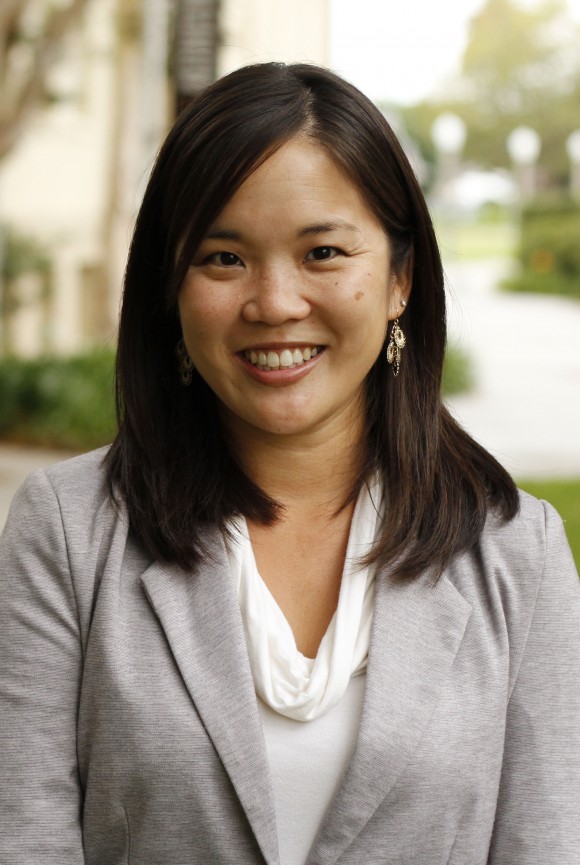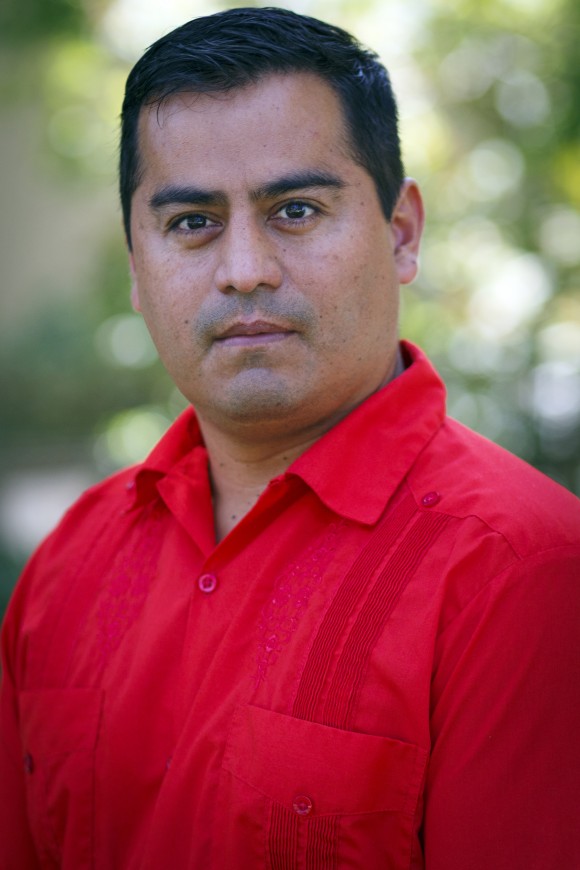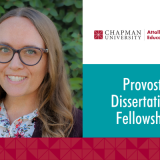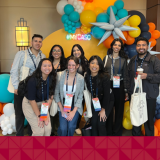Three New Faculty for 2015-2016
Announced on August 13, 2015
Three new faculty for 2015-2016 join the College of Educational Studies bringing a continued vision of inclusion, diversity and social engagement.
Dr. Scot Danforth, Professor, joins Chapman University in the College of Educational Studies, with primary teaching within the Ph.D. in Education program. His primary teaching and research responsibilities are in the area of Disability Studies in Education. Scot has an extensive background as a scholar in this field. He is an author of dozens of articles about the social, political, and historical construction of childhood disabilities. His books include Becoming a Great Inclusive Educator (2014), The Incomplete Child: An Intellectual History of Learning Disabilities (2009), Disability and the Politics of Education: An International Reader (2008, with Susan L. Gabel), Vital Questions Facing Disability Studies in Education (2007, with Susan L. Gabel), and Engaging Troubling Students: A Constructivist Approach (2004, with Terry Jo Smith).
For six years Scot served as Co-Editor of Disability Studies Quarterly, the official journal of the Society for Disability Studies. He and Susan L. Gabel co-founded the Disability Studies in Education Special Interest Group of the American Education Research Association in 1999.
Scot’s current scholarly projects include editing (with Susan L. Gabel) a second edition of Vital Questions Facing Disability Studies in Education and (with Phyllis Jones) a new volume entitled The Foundations of Inclusive Education. He is also conducting research about the historical roots of the American disability rights movement at the University of California – Berkeley.
 Prior to joining Chapman, Dr. Trisha Nishimura, Assistant Professor and Program Coordinator of Special Education Programs, served as Assistant Professor of Special Education at CSU San Marcos. Dr. Nishimura has also served as a K-6 Special Education teacher and Special Education Teacher on Special Assignment (TOSA). Her role as a Special Education TOSA included: developing new programs and curriculum, working with families, and providing professional development to promote inclusive classrooms. Dr. Nishimura’s research focuses on inclusive education reform. Her work aims to provide access for all students. Dr. Nishimura’s work also aims to build family/school/community linkages for students with disabilities. A second area of her research explores the intersection of Asian Americans in special education and the impact of the Model Minority myth. She is interested in uncovering the hidden voice of Asian American families.
Prior to joining Chapman, Dr. Trisha Nishimura, Assistant Professor and Program Coordinator of Special Education Programs, served as Assistant Professor of Special Education at CSU San Marcos. Dr. Nishimura has also served as a K-6 Special Education teacher and Special Education Teacher on Special Assignment (TOSA). Her role as a Special Education TOSA included: developing new programs and curriculum, working with families, and providing professional development to promote inclusive classrooms. Dr. Nishimura’s research focuses on inclusive education reform. Her work aims to provide access for all students. Dr. Nishimura’s work also aims to build family/school/community linkages for students with disabilities. A second area of her research explores the intersection of Asian Americans in special education and the impact of the Model Minority myth. She is interested in uncovering the hidden voice of Asian American families.
Dr. Nishimura’s primary teaching areas include: special education law, disability, families, and schools, Universal Design for Learning and Co-teaching.
 Dr. Miguel Zavala, Associate Professor, joins the College of Educational Studies in 2015 and teaches in the Integrated Educational Studies and Master of Arts in Curriculum & Instruction (MACI) programs. Dr. Zavala earned his doctorate from the University of California, Los Angeles in Education with an emphasis in Urban Schooling. Prior to joining the Chapman University community, Dr. Zavala worked in the Department of Secondary Education at California State University, Fullerton (CSUF), where he assisted colleagues to form the Center for Migrant Students & Families, serving as Director of the 2015 Migrant Student Leadership Institute (MSLI), a residential program that empowers migrant youth throughout the state of California. Since 2013, he has assumed key leadership positions in the California Chapter of the National Association for Multicultural Education (CA-NAME). For the past decade he has been an active member and founder of grassroots organizations in South Los Angeles and is currently organizing with Chicana/o high school students in Santa Ana, CA Dr. Zavala has taught in the LA Unified School District in some of the most neglected areas of Los Angeles as a English and Social Studies teacher at the middle-school and high school levels.
Dr. Miguel Zavala, Associate Professor, joins the College of Educational Studies in 2015 and teaches in the Integrated Educational Studies and Master of Arts in Curriculum & Instruction (MACI) programs. Dr. Zavala earned his doctorate from the University of California, Los Angeles in Education with an emphasis in Urban Schooling. Prior to joining the Chapman University community, Dr. Zavala worked in the Department of Secondary Education at California State University, Fullerton (CSUF), where he assisted colleagues to form the Center for Migrant Students & Families, serving as Director of the 2015 Migrant Student Leadership Institute (MSLI), a residential program that empowers migrant youth throughout the state of California. Since 2013, he has assumed key leadership positions in the California Chapter of the National Association for Multicultural Education (CA-NAME). For the past decade he has been an active member and founder of grassroots organizations in South Los Angeles and is currently organizing with Chicana/o high school students in Santa Ana, CA Dr. Zavala has taught in the LA Unified School District in some of the most neglected areas of Los Angeles as a English and Social Studies teacher at the middle-school and high school levels.
Dr. Zavala’s research explores the possibilities of learning and teaching within grassroots spaces. In particular, he builds on the emerging scholarship by critical Chicana/o and Indigenous scholar-activists, working with a decolonizing framework for understanding pedagogical, research, and community organizing processes and spaces. His most recent work involves studying and building Youth Participatory Action Research projects in urban contexts.


